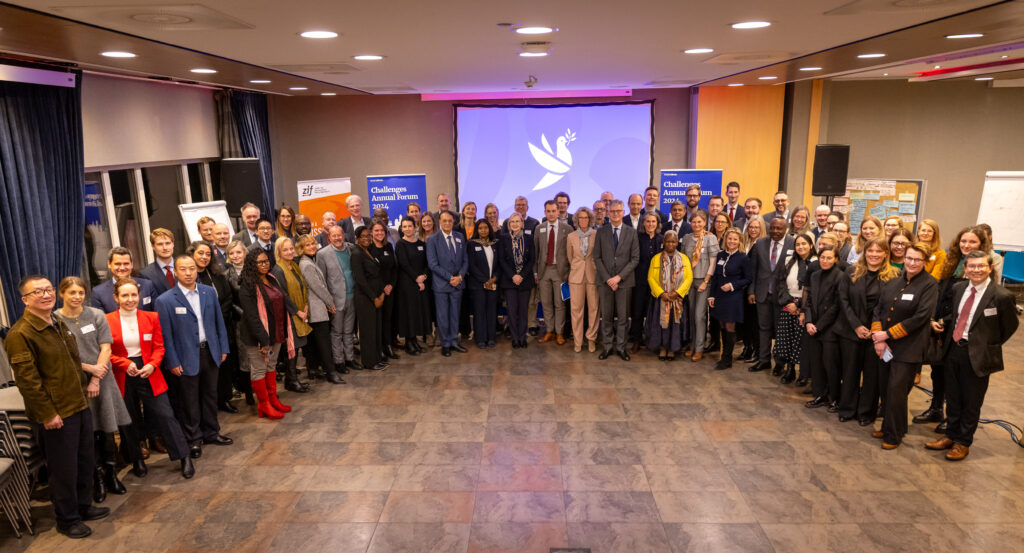CAF24 in Berlin – Shaping the next generation of Peace Operations
The Challenges Annual Forum 2024 (CAF24), held on December 3–4 in Berlin, convened over 120 partners and key stakeholders, including representatives from the United Nations (UN) and regional organisations, to discuss how to shape the next generation of peace operations. Hosted by the Center for International Peace Operations (ZIF), this year’s forum built on the momentum of the UN Pact for the Future and aimed to contribute to the upcoming Berlin Peacekeeping Ministerial, the Review of All Forms of Peace Operations, and the Peacebuilding Architecture Review. Linking these processes will be crucial for ensuring a coherent and integrated approach for sustaining peace.




The Forum’s discussions identified a number of Key Takeaways, listed in this document.
This year’s forum emphasised the urgent need to adapt peace operations to today’s complex geopolitical realities. Participants underscored the need to rebuild consensus around peace operations, utilising and leveraging all available tools and partnerships. While peace agreements may increasingly rely on transactional dynamics, the UN remains indispensable in ensuring international peace and security when other actors fall short.
Key Themes and Insights
CAF24 discussions were structured around three thematic areas that reflect pressing priorities for peace operations:
1. Sustainable Political Solutions for Successful Peace Operations (read the background paper)
Effective peace operations must be anchored in inclusive political strategies that are regularly reviewed. Participants highlighted the need for shared accountability among the UN Security Council, host countries, and peace operations. Recommendations included restoring the authority of the Security Council, leveraging the role of the General Assembly in mandating peace operations, fostering cooperative relations with host countries through mutual accountability framework and engaging more systematically with the Peacebuilding Commission to ensure sustained support for long-term peacebuilding efforts.
2. Operationalising Adaptable and Effective Peace Operations (read the background paper)
To address rapidly changing conflict dynamics, CAF24 called for a more flexible and modular approach to peace operations. This includes upgrading operational toolkits, fostering partnerships with regional organizations like the African Union (AU), and promoting structural coherence across UN missions. Participants also stressed the importance of breaking organisational silos, incentivising innovation and enhancing staff mobility to improve responsiveness.
3. Enhancing Integration and Strategic Coherence in Peacebuilding (read the background paper)
Achieving sustainable peace requires better integration of peace operations with national priorities and stronger collaboration across humanitarian, development, and peace actors. Locally anchored strategies were emphasised as crucial for fostering ownership and resilience in host countries. Multi-year funding mechanisms and private sector engagement were identified as potential game changers in advancing coherent peacebuilding efforts.
CAF24 highlighted that while significant challenges remain—ranging from geopolitical divisions to operational inefficiencies—there is a shared commitment among stakeholders to rethink traditional models of peacekeeping and build more resilient frameworks for sustaining global peace.
For more insights from CAF24, read the Key Takeaways document. Read more about the purpose and theme of the event in this concept note. The full programme including all speakers is available here. Recordings of livestreamed sessions are also available on YouTube.


